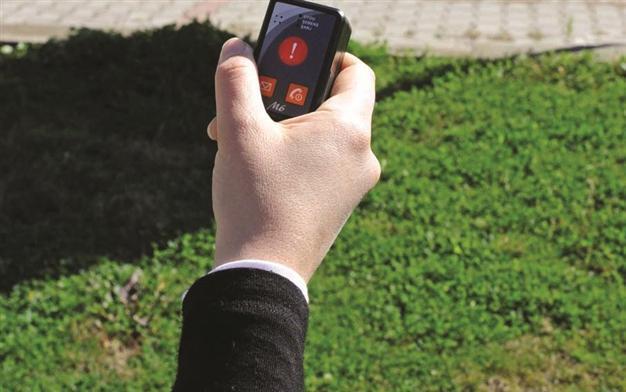Panic button to protect Turkish women against domestic violence 'failed'
ANKARA – Anadolu Agency

The panic button project was initiated in pilot areas in the southern province of Adana and the northwestern province of Bursa in mid-2012.
A much–hyped panic button system intended to protect women against violence has been a failure, Family and Social Policies Minister Ayşenur İslam has acknowledged, after the government conducted an impact analysis regarding the panic button system.“Electronic surveillance of the perpetrator, rather than of the victim, is a much better system. There is already a system for that in Turkey, a probation service under which the perpetrator is monitored and kept away from the victim. We want the same system to be applied in cases of violence against women,” İslam said on Oct. 30.
She added that her ministry had applied to the Interior and Justice Ministries, and to the National Police Force, regarding the introduction of this system.
In a measure to fight violence against women, a pilot panic button project was initiated in pilot areas in the southern province of Adana and the northwestern province of Bursa in mid-2012. The buttons allow women facing violence to contact the police with a single press of the button. When the button is pressed, the location is transferred to the 155 Police Line through GPS technology, utilizing a private GSM operator SIM Card.
“The panic button, whose pilot area application started in Adana and Bursa, has been distributed to a total of 204 victims of violence up to now. But today there are only 15 active panic buttons in Adana and 43 in Bursa,” said İslam, adding that despite the panic buttons also being given to a number of men, there were no male users at the moment.
İslam said the government had been tracking violence against women and murders of women for the past five years, and although figures showed no increase, no fall had been observed either.
“As a minister who is responsible for the subject, I do not deem it a success that there is no increase [in these cases]. There needs to be a decrease,” said Islam, stressing that the government’s program and perception of humanity was built upon zero tolerance to violence.
She also suggested that the current situation regarding violence against women in Turkey was not very different from the situation around the world, referring to EU statistics indicating that one in every three women in the European Union was a victim of violence at some point in their life.
İslam claimed that the rate was not as high in Turkey as in the EU, but noted that the recorded rate of murders of women was very high in Turkey.
“There is a serious number of the death cases. This is a problem that we definitely need to combat. It is a problem that we need to bring down to zero,” she said.
















